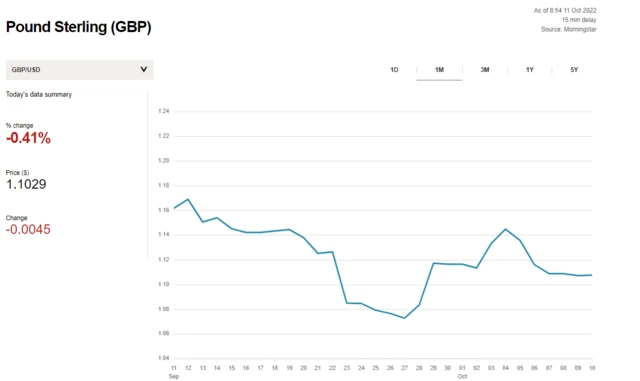Public paying price for government mistakes - Labourpublished at 09:42 BST 11 October 2022
Labour has accused ministers of forcing the public to "pay the price for their mistakes".
Shadow treasury minister Pat McFadden spoke to BBC Breakfast, after a report from the Institute for Fiscal Studies think tank suggested the chancellor would need to make big spending cuts due to a shortfall in revenue.
McFadden said the government should rethink its policies, adding: "It's time to press pause on this rather than doing more damage."


